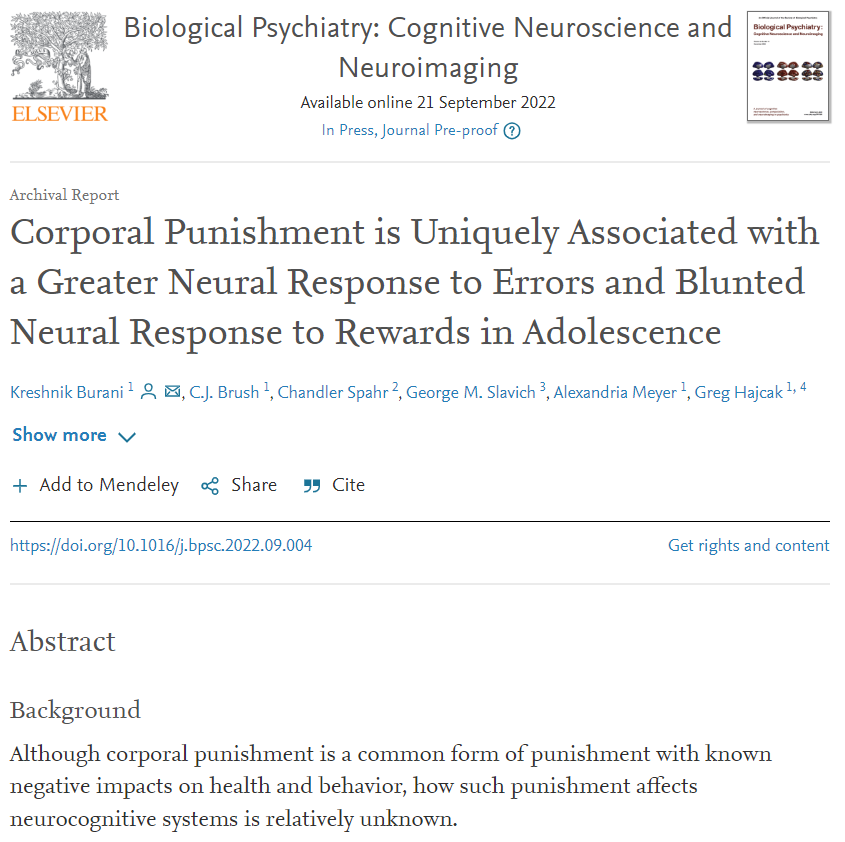New study confirms that corporal punishment increases the risk of developing anxiety and depression in adolescents, and illuminates how altered brain activity leads to this outcome
A new study[1] carried out by researchers led by Kreshnik Burani at Florida State University sought to increase understanding of the neural impacts of corporal punishment.
The researchers studied 149 girls and boys aged 11-14 years in the United States. Participants were asked to complete a video game task and a monetary guessing game, while an electroencephalography (EEG) measured brain-wave activity from their scalp. From the EEG data each participant was given two scores – one for their neural response to errors and another for their neural response to reward.
Two years later the participants and their parents completed a questionnaire assessing the adolescents for anxiety and depression and determining parenting style and behaviour.
As predicted by previous research, participants who had experienced corporal punishment were more likely to show anxiety or depression. They were also more likely to have a larger neural response to error and a smaller response to reward.
In other words, this study shows that children who have been subjected to corporal punishment are more sensitive to making mistakes – consistent with anxiety - and less responsive to receiving rewards or other positive events in their environment – consistent with depression and lower mood.
This study finds that corporal punishment affects brain neural activity, increasing sensitivity to negative stimuli, with impacts lasting years.
Find out more about what 50 years of research tells us about corporal punishment.
[1] Kreshnik Burani, C.J. Brush, Chandler Spahr, George M. Slavich, Alexandria Meyer, Greg Hajcak, Corporal Punishment is Uniquely Associated with a Greater Neural Response to Errors and Blunted Neural Response to Rewards in Adolescence, Biological Psychiatry: Cognitive Neuroscience and Neuroimaging, 2022

